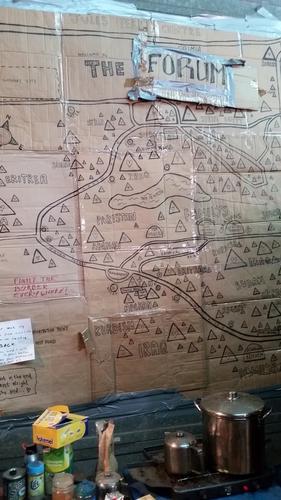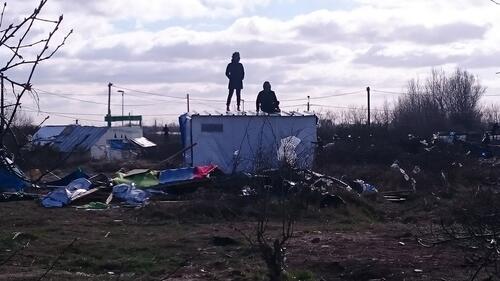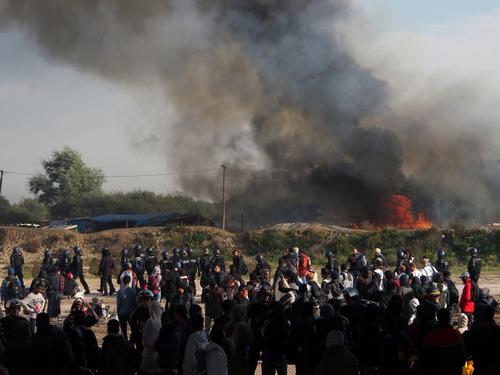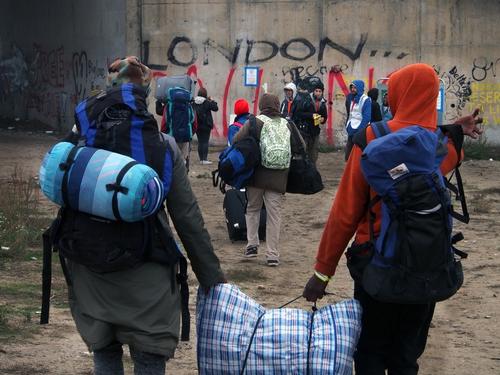An estimated 5,000 refugees continue to live in the Jungle despite the forced eviction by French Authorities of nearly half of the refugee camp in March 2016. French authorities constructed a ‘Temporary Reception Centre’ with 1,500 places using white shipping containers. The controversial site is surrounded by tall fences, fingerprint scanners and metal gates positioned at entrances and exits creating a prison-like atmosphere.
Today the Jungle sits on half the surface area of the original site and overcrowding is heightening tensions among a vulnerable population. Families and children can stay in the Jules Ferry Centre and others can move to Reception Centres elsewhere in France, where they are then able to apply for asylum. At the beginning of May, over 350 unaccompanied minors were documented in the Jungle.
MSF is increasing its support for the most vulnerable groups within the Jungle: women, unaccompanied minors and migrants demonstrating psychological problems through outreach activities and the support of a psychologist present in the Jungle's health centre. MSF is currently working on a Youth Center for minors in the Jungle that will offer mental health support, access to legal information and other activities.
During the destruction and evacuation of the southern part of the slum on February 29, MSF mobilized a small medical clinic in the southern part of the camp in order to provide medical care to the wounded. The French authorities have previously made threats to dismantle and evict the northern part of the camp, but today local authorities are slowly making investments in water and sanitation services, which remain a major concern.
As of 1 March, MSF handed over its medical activities to the local hospital in Calais. Between November 2015 and February 2016 8,416 medical consultations were provided (25% for respiratory infections and 20% for scabies, many patients aged 15-18 years). There were also 54 consultations for “non-accident related violence”.






